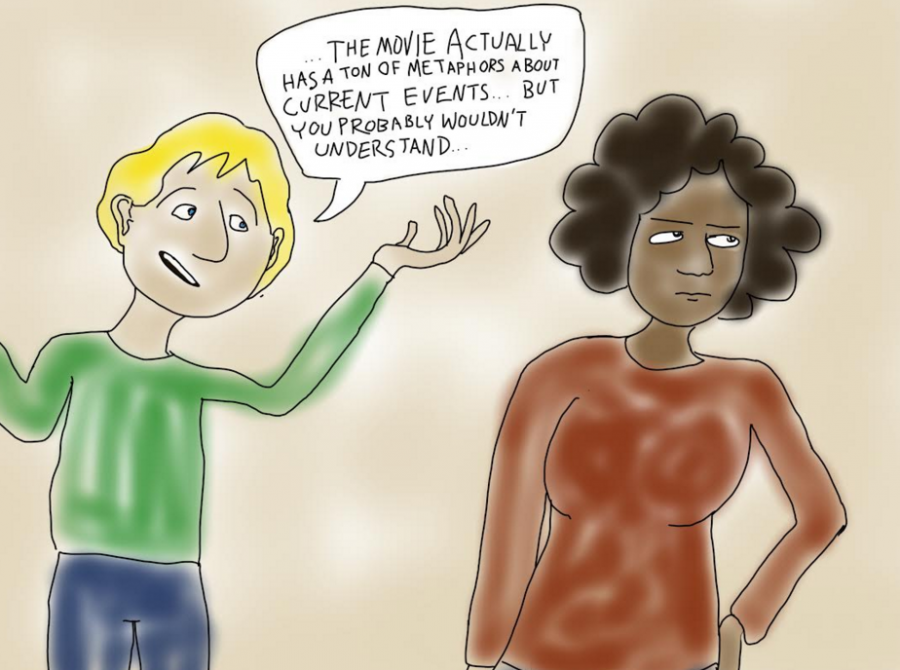White Students: Stop talking over students of color
April 21, 2017
You may believe that more voices make a conversation better, but that doesn’t mean you’re entitled to discussions about issues that don’t affect you.
Now that films like Get Out and 13th are provoking intelligent and nuanced discussions about race, White students like you may think that you know it all, but watching a movie is not a substitute for lived experience. White students are all too eager to speak out over students of color in discussions about race, but this pattern needs to end.
The phenomenon, commonly referred to as “whitesplaining,” happens when a White person speaks over or down to a person of color in a conversation about race, especially one that directly affects the person of color.
Whiteness has the habit of sabotaging discourse, and when that happens, discussions fail. To analyze an argument or historical event, the best thing to further that conversation is to hear an experience directly shaped by that topic. In discussions about racism, the voices of people of color are primary sources, while White voices act more like tertiary sources, far disjointed from the reality of the issue.
Despite this, White voices dominate discussions about race when they’re included, and even sometimes when they’re not.
This behavior can be explained by how White men are taught from an early age that their voices matter more. Research done by the American Association of University Women shows that starting as early as Kindergarten, White males are called on more frequently than their peers, even when their hands aren’t raised. This inflates egos and produces a greater sense of self-importance when it comes to important discussions. So now when it’s time to weigh in on sensitive topics like the contents of 13 Years a Slave, White people are willing to jump in and dominate the conversation, steering it towards their opinion, leaving little room for voices that are needed to discuss the important issues.
It seems to be a competition among liberal White students to prove how not racist they are, forcefully injecting their knowledge about racial injustice into conversations where that information isn’t relevant in a desperate attempt to prove they know something the person of color doesn’t. They think that somehow this will prove that they are one of the “good White people,” which is a hopeless quest, in some capacity all White people are racist and there is no immediate remedy to that fact.
One might argue that everyone deserves to voice their opinion, and that if a conversation includes a diverse group of people, then the discussion is equal. However, diversity is not equity. If in a space there are people of all different races, but the people of color in that space don’t feel comfortable voicing their opinion, that space is diverse but not equal, and not all voices are heard.









Sofía Stutz • May 27, 2017 at 9:25 pm
Great article!